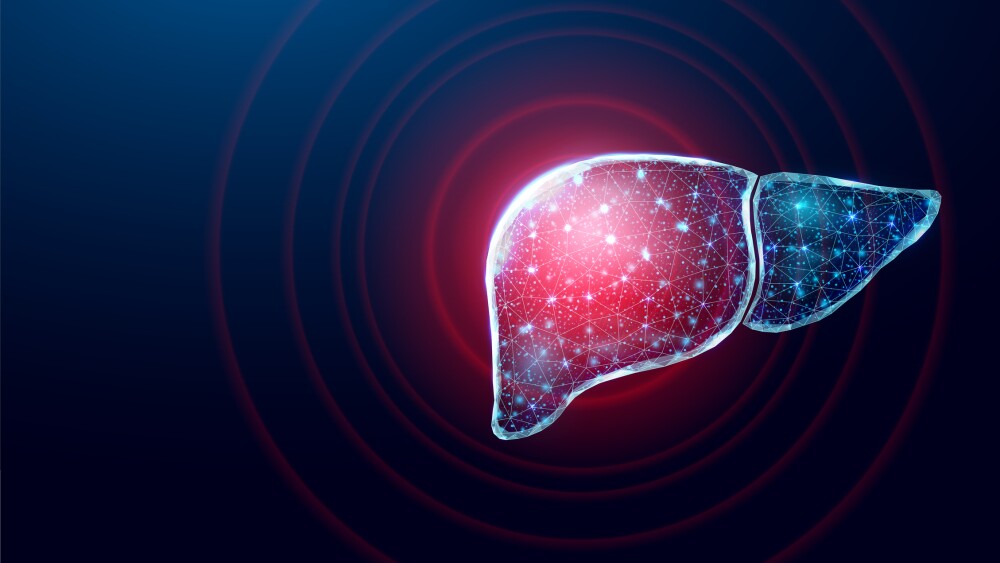Xenon Pharmaceuticals Inc. today reported topline results from the randomized, double-blind, placebo-controlled, Phase 2 proof-of-concept X-NOVA clinical trial, which evaluated the clinical efficacy, safety, and tolerability of 10 mg and 20 mg of XEN1101 in 168 patients with moderate to severe major depressive disorder, or MDD.
VANCOUVER, British Columbia, Nov. 27, 2023 (GLOBE NEWSWIRE) -- Xenon Pharmaceuticals Inc. (Nasdaq:XENE), a neurology-focused biopharmaceutical company, today reported topline results from the randomized, double-blind, placebo-controlled, Phase 2 proof-of-concept X-NOVA clinical trial, which evaluated the clinical efficacy, safety, and tolerability of 10 mg and 20 mg of XEN1101 in 168 patients with moderate to severe major depressive disorder, or MDD.
Summary of Efficacy Data
- The primary endpoint of the study was a change in the Montgomery-Åsberg Depression Rating Scale, or MADRS, at week 6. The mean reduction was 13.90 in the placebo group, 15.61 in the XEN1101 10 mg group and 16.94 in the XEN1101 20 mg group. A clear dose response and a clinically meaningful, but not statistically significant, 3.04 difference between placebo and the XEN1101 20 mg group (p=0.135) was observed.
- Statistical significance was achieved on the pre-specified endpoint of the Hamilton Depression Rating Scale, or HAM-D17, at week 6 with a mean reduction of 10.18 in the placebo group and 13.26 in the XEN1101 20 mg group (p=0.042).
- Statistical significance was achieved on the key secondary endpoint of a change in the Snaith-Hamilton Pleasure Scale, or SHAPS, measuring anhedonia at week 6 with a reduction of 5.30 in the placebo group and 7.77 in the XEN1101 20 mg group (p=0.046).
- Statistical significance was achieved in MADRS at week 1 with a mean reduction of 4.88 in the placebo group and 7.54 in the XEN1101 20 mg group (p=0.047) demonstrating early onset of efficacy.
- Statistical significance was achieved in reporting of at least minimally improved symptoms of depression as assessed by physicians using the Clinical Global Impression of Improvement (CGI-I) (p=0.004) in the XEN1101 20 mg group compared to placebo.
Summary of Safety and Tolerability Data
- XEN1101 was well tolerated with similar rates of adverse events reported across all treatment arms.
- The most commonly reported treatment-emergent adverse events (TEAEs) in the XEN1101 20 mg group included dizziness (17.9%), somnolence (10.7%), headache (8.9%) and disturbance in attention (8.9%), as compared to the placebo group which reported dizziness (7.3%), somnolence (1.8%), headache (12.7%) and disturbance in attention (0%).
- Rates of discontinuation were similar across all treatment arms and rates of discontinuation due to TEAEs were low with three patients in the XEN1101 20 mg group (5.4%), as compared to two patients in the placebo group (3.6%).
- No serious adverse events (SAEs) were reported in the two XEN1101 treatment groups and there were two patients (3.6%) in the placebo group who experienced a treatment-emergent SAE.
- XEN1101 was not associated with clinically meaningful weight gain or sexual dysfunction.
Dr. Christopher Kenney, Xenon’s Chief Medical Officer, stated, “We are encouraged by the data we have generated with XEN1101 in this proof-of-concept study where we see clinically meaningful, dose-dependent drug activity and early onset of efficacy in depression. Importantly, XEN1101 was well tolerated in this patient population, with a low incidence of treatment-emergent adverse events, and no serious adverse events in either dose group. These data also support our belief that XEN1101, through its unique Kv7 mechanism of action, has the potential to play an important role in addressing anhedonia, a common co-morbidity in depression. Overall, there continues to be a strong need for new treatment options for MDD, and we believe XEN1101 has attractive qualities such as a novel mechanism, early onset of action and an overall favorable tolerability and safety profile.”
Ian Mortimer, Xenon’s President and Chief Executive Officer stated, “Based on the totality of data from this study, including clinically meaningful drug activity in depression and anhedonia, we are actively exploring the future development of XEN1101 in MDD and potentially other indications as we believe this mechanism has potential broad applicability.”
Mr. Mortimer continued, “We believe that the data from this study in depression further build upon XEN1101’s compelling product profile in our ongoing Phase 3 development in epilepsy. Data to date support XEN1101’s potential to combine many key features important in treating epilepsy including compelling efficacy in focal onset seizures, rapid efficacy as demonstrated by statistically significant seizure reduction at week 1, a novel mechanism of action with no titration required and other ease of use attributes. We believe the new clinical data we have generated through X-NOVA further support the potential of XEN1101 to have a highly differentiated profile in the treatment of epilepsy given the significant co-morbidity of depression in epilepsy patients. We are excited to share the data generated in X-NOVA with epileptologists and neurologists at the upcoming American Epilepsy Society meeting in December.”
About the Phase 2 X-NOVA Clinical Trial in MDD
The Phase 2 proof-of-concept X-NOVA clinical trial evaluated the clinical efficacy, safety and tolerability of 10 mg or 20 mg of XEN1101 administered as monotherapy with food in patients with MDD. Designed as a randomized, double-blind, placebo-controlled, multicenter clinical study, the primary objective was to assess the efficacy of XEN1101 compared to placebo on improvement of depressive symptoms in subjects diagnosed with moderate to severe MDD, using the MADRS score change through week six. The X-NOVA study included a total of 168 randomized subjects, 167 treated subjects in the safety population, and 164 subjects in the modified intent to treat population for the efficacy analyses. The mean MADRS total scores at baseline were 34.2 for the XEN1101 10 mg group, 33.1 for the XEN1101 20 mg group and 34.5 for the placebo group, representing patients with moderate to severe MDD. Other baseline demographic characteristics were also similar across treatment arms.
Webcast/Conference Call Information
Xenon will host a conference call and webcast today at 8:30 am Eastern Time to discuss the Phase 2 X-NOVA results. You may view the live webcast using this link, which can also be accessed on the Investors section of the Xenon website. Participants who wish to dial in to the live conference call should pre-register using this link to obtain your unique PIN code. A replay of the webcast will be available on the website approximately one hour after the conclusion of the event and will be archived for approximately one month.
About Xenon Pharmaceuticals Inc.
Xenon Pharmaceuticals (NASDAQ:XENE) is a clinical stage biopharmaceutical company committed to developing innovative therapeutics to improve the lives of patients with neurological disorders. We are advancing a novel product pipeline of neurology therapies to address areas of high unmet medical need, with a focus on epilepsy. For more information, please visit www.xenon-pharma.com.
Safe Harbor Statement
This press release contains forward-looking statements within the meaning of Section 27A of the Securities Act of 1933, as amended, and Section 21E of the Securities Exchange Act of 1934, as amended, and the Private Securities Litigation Reform Act of 1995 and Canadian securities laws. These forward-looking statements are not based on historical fact, and include statements regarding the potential efficacy, safety profile, future development plans, addressable market, regulatory success and commercial potential of our product candidates; the efficacy of our clinical trial designs; our ability to successfully develop and achieve milestones in our XEN1101 and other development programs; our ability to successfully develop and obtain regulatory approval of XEN1101 and our other product candidates; and our intent to explore future development of XEN1101 in MDD and potentially other indications. These forward-looking statements are based on current assumptions that involve risks, uncertainties and other factors that may cause the actual results, events, or developments to be materially different from those expressed or implied by such forward-looking statements. These risks and uncertainties, many of which are beyond our control, include, but are not limited to: clinical trials may not demonstrate safety and efficacy of any of our or our collaborators’ product candidates; promising results from pre-clinical development activities or early clinical trial results may not be replicated in later clinical trials; our assumptions regarding our planned expenditures and sufficiency of our cash to fund operations may be incorrect; our ongoing discovery and pre-clinical efforts may not yield additional product candidates; any of our or our collaborators’ product candidates, including XEN1101, may fail in development, may not receive required regulatory approvals, or may be delayed to a point where they are not commercially viable; we may not achieve additional milestones in our proprietary or partnered programs; regulatory agencies may impose additional requirements or delay the initiation of clinical trials; the impact of competition; the impact of expanded product development and clinical activities on operating expenses; the impact of new or changing laws and regulations; the impact of pandemics, epidemics and other public health crises on our research and clinical development plans and timelines and results of operations, including impact on our clinical trial sites, collaborators, regulatory agencies and related review times, and contractors who act for or on our behalf; the impact of unstable economic conditions in the general domestic and global economic markets; adverse conditions from geopolitical events; as well as the other risks identified in our filings with the Securities and Exchange Commission and the securities commissions in British Columbia, Alberta, and Ontario. These forward-looking statements speak only as of the date hereof and we assume no obligation to update these forward-looking statements, and readers are cautioned not to place undue reliance on such forward-looking statements.
“Xenon” and the Xenon logo are registered trademarks or trademarks of Xenon Pharmaceuticals Inc. in various jurisdictions. All other trademarks belong to their respective owner.
Investor/Media Contact:
Jodi Regts
Xenon Pharmaceuticals Inc.
Phone: 604.484.3353
Email: investors@xenon-pharma.com





